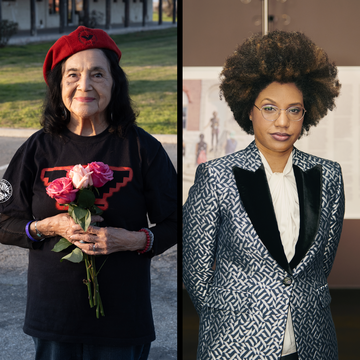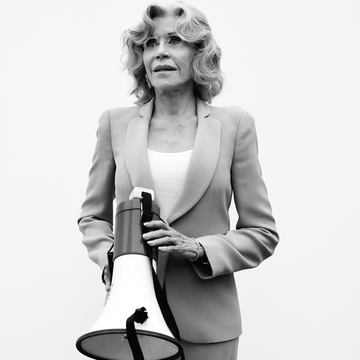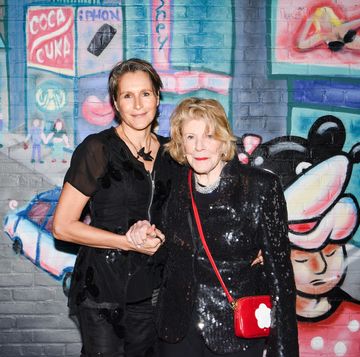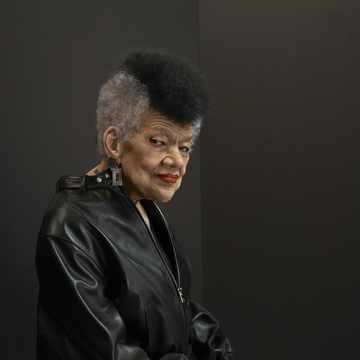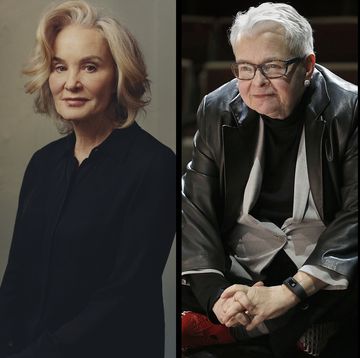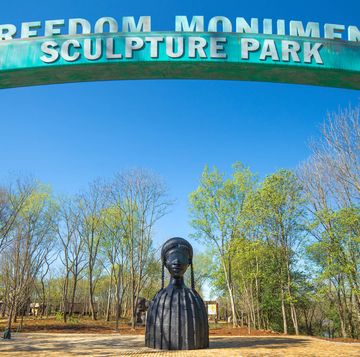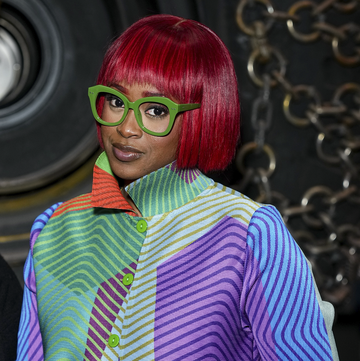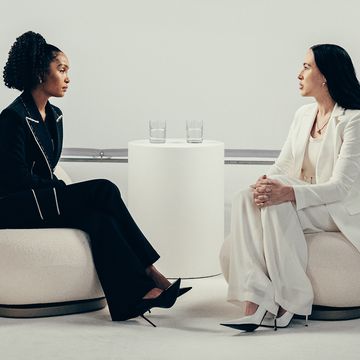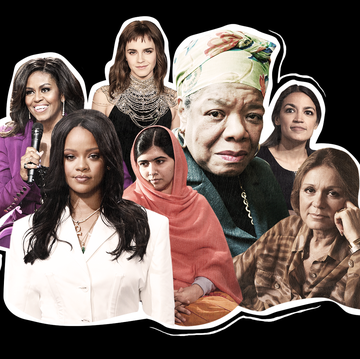As a child, I knew my grandparents as deeply in love. My own parents would have a drawn-out and traumatic divorce, and during it, for a time, we lived with my grandparents. I saw their devotion up close.
When I was a teenager, my mother told me, in passing, a story about how my grandfather used to apply my grandmother’s makeup for her, a small act of luxury and care, a bonded intimacy between the two that captivated me. I held it out as a standard of affection: Get me a man so devoted, he’d beat my face for me. On my wedding day to my now ex-husband, I realized I couldn’t apply my eyelashes on my own, and I remember thinking, as he stood with me in our hotel suite and pressed them each, gently, to my eyelids, that this was a kind of romantic destiny. We later separated, but I think about that tenderness in the moment. If my daughter ever asks me about our love story, I will probably include that scene in the telling. My grandmother grew up in Portsmouth, New Hampshire, in one of the few Black families in town. She had seven brothers and sisters, six of them surviving to adulthood. One by one, they grew up and eventually moved away, but my grandmother stayed in the Portsmouth area for decades.
Her father, my great-grandfather, traveled frequently, for extended periods, to the South to teach in various schools. But he always found it hard to make enough money to support his large family back home. In an undated letter to my grandmother, he wrote: “One of the primary objects of my wanderlust adventure was to find suitable permanent employment somewhere where you children would have a proper social environment…. At times, I had great difficulty just to exist, with no means at hand to meet current expenses. I finally decided that leaving where I was would do no good, and that I had better wait until business was on the upswing. I am not earning a normal salary, but it is a vast improvement over nothing.”
The untenableness of Portsmouth—both as a place to make a living and as a place to raise a family—appears to have been a perennial concern. In another letter, he wrote, “I realize the usual urge of adolescence to indulge in romance, but I also expect my girls to have enough self possession to know that they do not have an opportunity to meet desirable life companions in Portsmouth.”
Portsmouth was not entirely white; it had a small but thriving Black community. But my great-grandfather’s anxiety over suitable marriage material for his daughter is one that echoes through the centuries to my own time, whenever I read statistics about 70 percent of Black women in the U.S. being unmarried, or how often Black women’s profiles are viewed on dating apps. My great-grandfather had the fear that his daughters would be swallowed by whiteness, left unloved and uncared for, and, most importantly for an Ivy League man, without a “desirable” life companion.
Unspoken in all of this was color: My grandmother was dark-skinned, the same shade as my great-grandfather. But in the dating prospects of curtailed Black New England, would this have hurt her chances? It’s not explicitly stated in any of the letters except for that line about desirable companions. My grandmother never spoke directly about colorism. She was a famous beauty, “a black Elizabeth Taylor,” as one of her friends once described her, but knowing what I know about the history of colorism, it must have affected her life.
Was it her color, or her stubborn insistence on remaining in New Hampshire, or her own uncertainty in the game of love, made wobbly because of her sad childhood? I am not sure, I only know that she found her great love, my grandfather, on the other side of 30. He had come to New Hampshire with the Navy, during the Second World War. My grandfather was light-skinned, so much so that my mother tells me that on some of the submarines, when he encountered white people who had never met a Black person before, they mistook him for one of their own. I do not know, cannot fathom, what it must have felt like to be suspended in the middle of the ocean, encased in iron, surrounded by those who are unable to see you. But when I try to imagine it, I begin to understand what my grandfather and my grandmother must have had in common when they first met.
Yet as a child, watching their love story that had been unfolding for many years, I saw only the comfort of a love that had been lived in for a long time. When I first discovered my great-grandfather’s letters, after my grandmother’s death, I felt a kind of anger toward him, on her behalf, this man telling her what was and wasn’t possible. Now, however, I see that even in his needling, insistent chides to my grandmother there was a kind of love, one so concerned with trying to make this world safe for a cherished daughter, it could not find the space to imagine a different one, where she was celebrated. But my grandparents made that world for themselves anyway.
Kaitlyn Greenidge’s second novel, Libertie (Algonquin Books), is out this month.
This article originally appears in the March 2021 issue of Harper's BAZAAR, available on newsstands now.
GET THE LATEST ISSUE OF BAZAAR
Kaitlyn Greenidge is the author of the novels We Love You, Charlie Freeman and Liberite, which will be published by Algonquin Books in March 2021.




